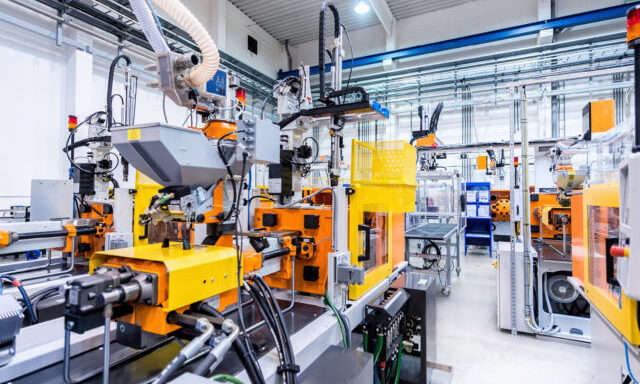Technology & innovation
Trade and traceability: How to battle supply chain disruption

As a process manufacturer, how can you reinvent your firm? Fuelled by digital transformation and Industry 4.0, manufacturers are overhauling their processes across product innovation and through the supply chain with traceability.
The shift from products to services and the need to bypass traditional sales channels to exploit the value-added activities of the digital economy are blurring the lines between industry players and contributing to the formation of business ecosystems.
In process manufacturing – including players in food and beverage, chemicals, metals, and pulp and paper – this change is particularly pronounced, where the digital mission is centered around collaborative innovation.
According to Sage research, this process manufacturing focus on technology is fuelled by developments in international trade and the globalisation of markets, with 64% of US, Canadian and UK process manufacturers affected by Brexit and the United States-Mexico-Canada Agreement (USMCA) uncertainty, 49% by Brexit only, and 41% by USMCA disruption. This regulatory disruption increases supply chain complexity, creating problems for process manufacturers.
The research also says that instead of tightening their purses in these unpredictable times, process businesses in your industry are investing in new technology.
Free ebook: Streamline your business operational process
Discover how 3 technology trends can help you overcome today’s top 4 industry challenges.

What technology should process manufacturers focus on?
As you expand your operations internationally, your commercial pressures and expectations are likely to increase. This puts strain on the supply chain, and by using information to manage quality, inefficiency and the threat of recalls, traceability is vital.
You often need to follow international standards for controlling quality and traceability, which impacts the sourcing of raw materials. In process manufacturing, tracing what goes into products, in what can be long and complex supply chains, is crucial, as any contamination can result in serious issues.
It’s important to understand the difference between “tracking” and “tracing,” as they are often confused with each other:
- Tracking focuses on progression. It occurs when you can see how parts progress from one sequence to the next, and how they move through the manufacturing process through location data. Internally, you can see where parts are, who’s worked on them, and how long until they’re finished.
- Tracing focuses on authentication. It allows you to, for example, identify the origin or a part through records and supply chain visibility. With data such as certifications of origin and purchase order numbers, products can be linked to their sources in the supply chain.
Tracing is more difficult than tracking. Tracking can fall under the responsibility of one company but tracing needs many of the businesses involved in the supply chain to comply.
Tracing can show whether a product is what it claims to be, which is important in industries such as pharmaceutical manufacturing where counterfeit products can cause serious problems. As well as providing authenticity, tracing can also provide accountability.
With food and beverage manufacturing, product traceability is more than just a trend – it’s the ability for the customer to make the right product choice.
For consumers, the difference between vegan, vegetarian and nut/gluten/shellfish-free food is not only about taste, it can be a matter of life or death. Traceability gives manufacturers the security of a healthy brand, healthy customers and healthy profits.
Traceability provides you with:
- Real-time visibility into the status of all processes
- Automatic notifications that allow your business to be more informed, allowing you to react to events such as non-compliance or demand triggers
- The ability to report and share product and materials data with your suppliers and customers, allowing them to understand where materials came and where they went.
Through the visibility afforded by traceability, you can significantly improve your operation. Compliance issues can lead to unhappy customers, damaged reputations and significant fines.
Traceability helps to avoid those problems, leading to a capability that is particularly important for process manufacturers – the ability to recall products.
With the right information, you can promote efficiency and improve decision-making through traceability. You can:
- Monitor for regulatory compliance – avoiding compliance issues that leads to unhappy customers, damaged reputations and significant fines
- Support product recalls
- Promote efficiency and improve decision-making
- Better manage materials
- Monitor a need for new materials
- Improve demand planning
- Better manage logistics
- Arrange better terms with suppliers.
Sage research reveals that more than 90% of process manufacturers reported risks in not having supply chain traceability, with serious concerns around incidents hitting the value of the brand and not meeting required regulations.
Although cost to human life and litigation as a risk came down lower than brand value and regulations, it was highest in sub-sectors such as pharmaceutical manufacturing, where contamination can directly lead to death and regulation is extremely tight to prevent this from happening.
Three forms of emerging technology to focus on
With traceability being so important to process manufacturers meeting regulations, keeping brand value, avoiding litigation, and preventing loss of life, you should be using emerging technology to support its use. It can be advanced through:
1. The Internet of Things
With the Internet of Things (IoT), devices can be connected anywhere, at any time. Using labeling technology such as radio-frequency identification (RFID) and quick response (QR) codes allows data to be collected that tracks a product’s full journey through the supply chain.
Anything can be recorded, from the status during transport to the source of materials.
2. Big data analytics
Using big data analytics, you can see where a problem has occurred and stop it from continuing through the supply chain. With unplanned events and potential crises such as tainted products in the supply chain, you can respond quickly, having identified, tracked and traced everything.
3. The cloud
You can take advantage of cloud solutions, with software managing aspects such as system infrastructure, operating system, database and applications. This allows you to spend less time and energy on repetitive admin-heavy tasks and more time on important operations.
Process manufacturers with traceability can monitor their needs for new materials and arrange better terms with suppliers. They can ensure fresh, quality goods for customers. These benefits will greatly improve its ability to keep costs low, while still improving customer satisfaction.
Traceability is essential for success in today’s manufacturing environment. With real-time visibility, you can ensure compliance, better manage the supply chain, and ensure quality goods are delivered to happy customers.
Take charge of your own destiny and keep on moving
As a process manufacturer, it’s important that you keep moving and face the challenges that result from regulatory upheaval. Our evidence makes it clear that businesses in your industry are investing in new technology.
Investment in traceability can certainly mitigate issues or even create a competitive advantage for you in the future. Look closely at your supply chain. Are you ready for the unexpected?
Free ebook: Streamline your business operational process
Discover how 3 technology trends can help you overcome today’s top 4 industry challenges.







